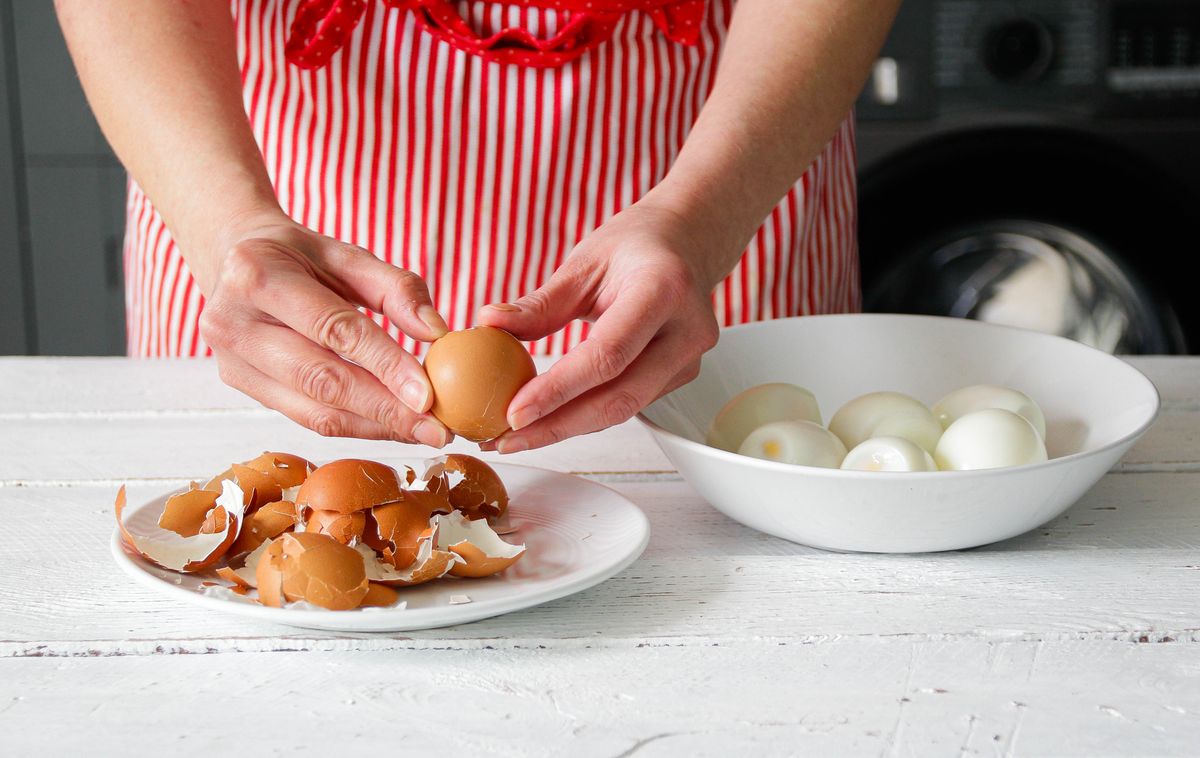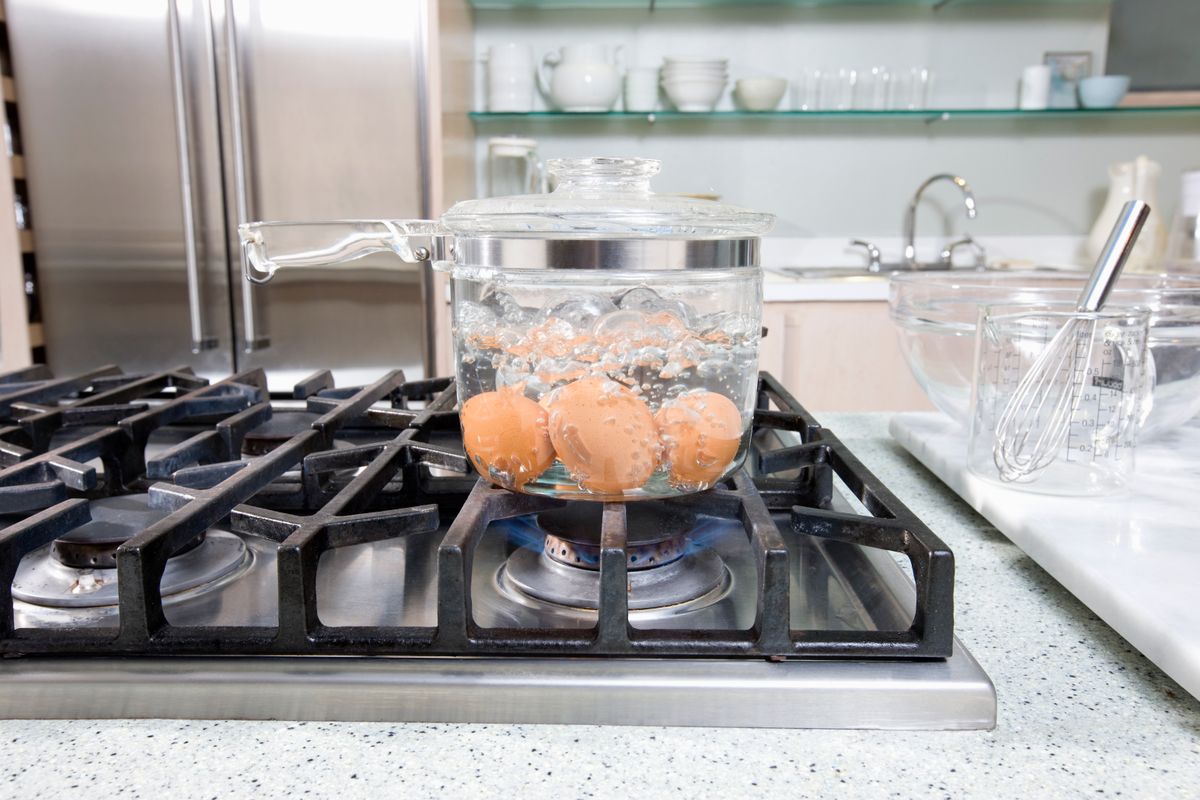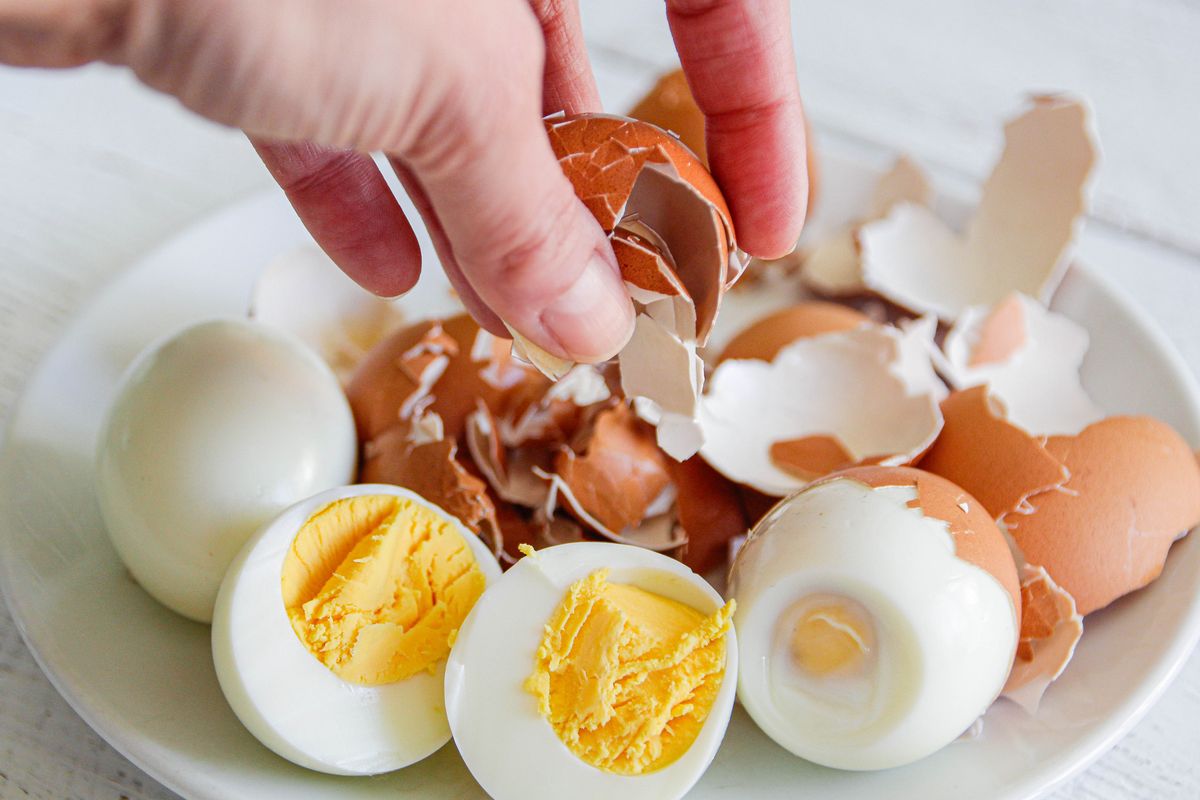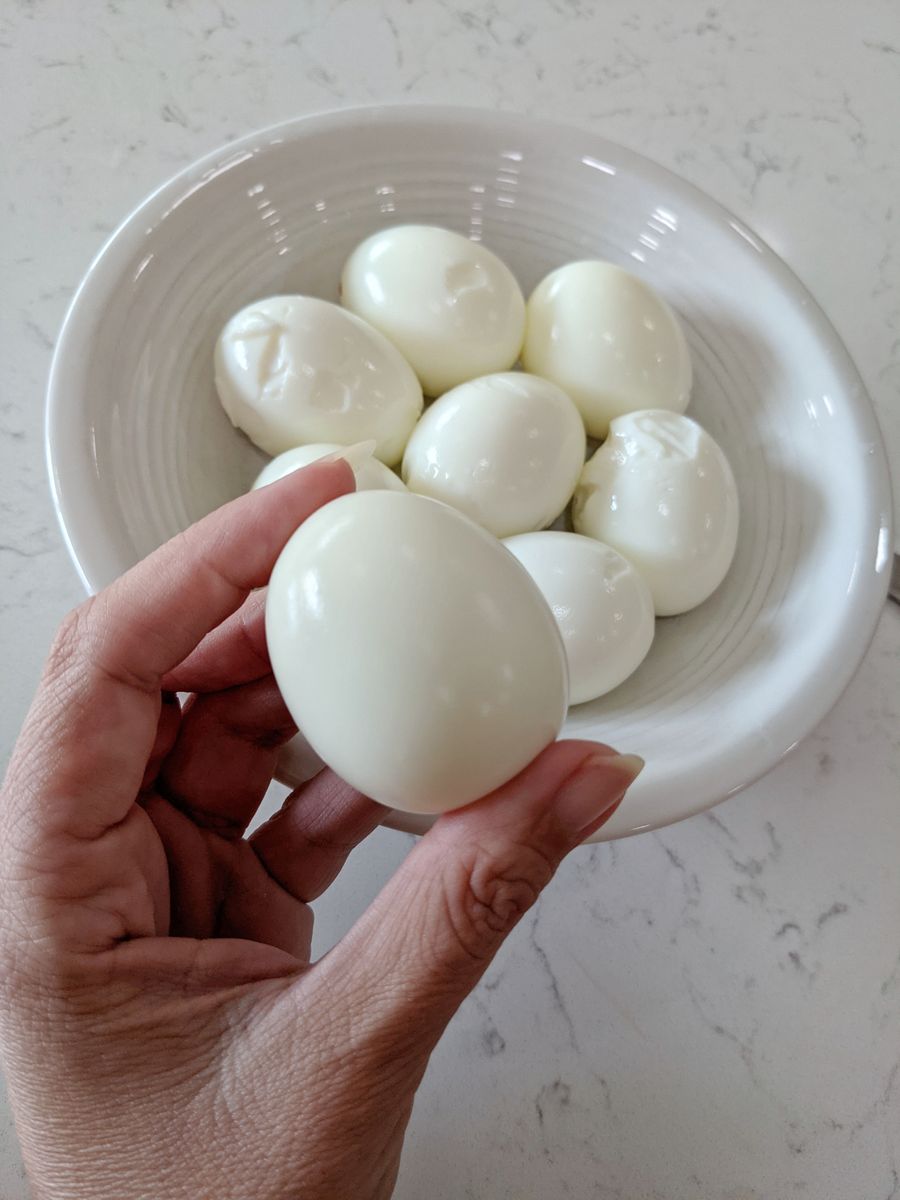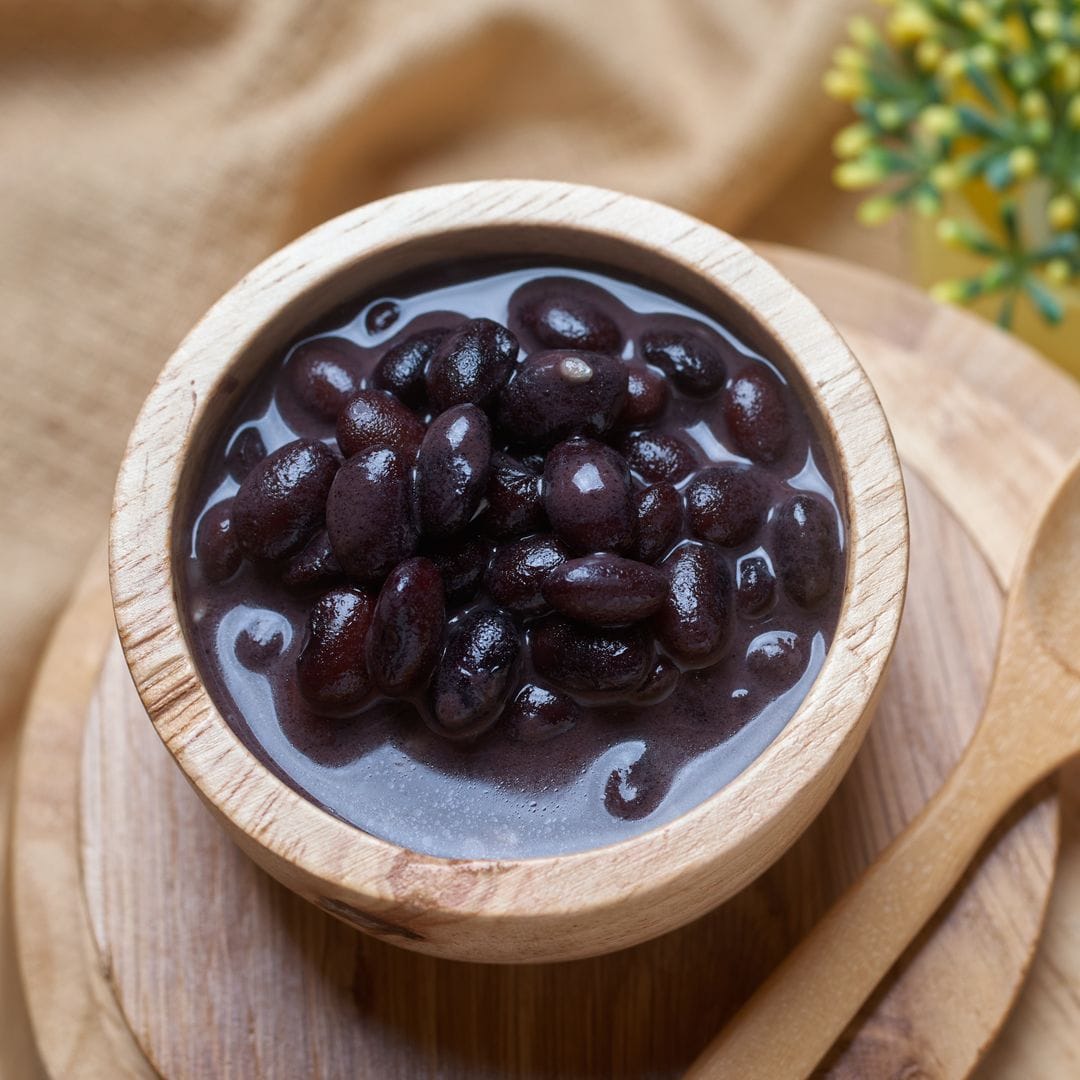Hard-boiled eggs are a kitchen staple. High in protein, rich in vitamins and minerals like B12, B6 riboflavin, and folate, they're not only healthy and tasty but also help support brain function. Whether for a quick snack, salad topping, or breakfast on the go, boiled eggs are perfect to have on hand. But let’s face it—it can get frustrating trying to peel one when the shell is clinging to the egg. If you’ve had your fair share of cracked, messy eggs, fear not! Here are two foolproof step-by-step guides using a boiling and steaming method to make hard-boiled eggs that won't fight back.
Option 1: The Classic Boiling Method for Easy-Peel Hard-Boiled Eggs
Step 1: Choose the Right Eggs
Older eggs (7–10 days old) peel more easily because their pH levels are higher, reducing the stickiness of the inner membrane. Just make sure they aren't rotten! You can put an egg in a cup of water and make sure it sinks; if it floats, it's time to throw it away.
Step 2: Boil Water First
Bring a pot of water to a rolling boil before adding the eggs. This heat shock helps separate the shell from the membrane.
Step 3: Simmer to Perfection
Lower the heat and let the eggs simmer for 9–12 minutes for fully cooked yet creamy yolks.
Step 4: Ice Bath Magic
Immediately transfer the eggs to an ice bath for at least 10 minutes to stop cooking and shrink the egg away from the shell.
Step 5: Crack, Roll, and Peel
Gently tap the egg on a hard surface, roll it lightly, and peel it from the bottom where the air pocket is for the easiest removal.
Step 6: Rinse and Store
Rinse off any leftover shell bits, then store peeled or unpeeled eggs in the fridge for up to a week.
Why It Works
The heat shock, ice bath, and use of slightly aged eggs create the perfect peeling conditions.
Option 2: The Steaming Method for Foolproof Peeling
Step 1: Pick Your Eggs
Steaming is a great choice because it works with fresh eggs, too. So grab whatever you have around.
Step 2: Set Up Your Steamer
Fill a pot with about an inch of water and bring it to a boil. Place the eggs in a steamer basket and cover.
Step 3: Steam for Easy Peeling
Steam eggs for 12 minutes for a fully cooked yolk. The steam penetrates the shell, helping separate the egg white from the membrane.
Step 4: Ice Bath for the Win
Immediately transfer the eggs to an ice bath for at least 10 minutes to stop cooking and contract the egg from the shell.
Step 5: Crack and Roll
Tap the egg on a hard surface, roll it gently, and peel from the bottom, where there’s an air pocket to get you started.
Step 6: Rinse and Store
Rinse off any leftover shell and store the eggs in the fridge for up to a week.
Why It Works
Steaming makes the eggshell less sticky, while the ice bath further ensures easy peeling.
,type=downsize)

